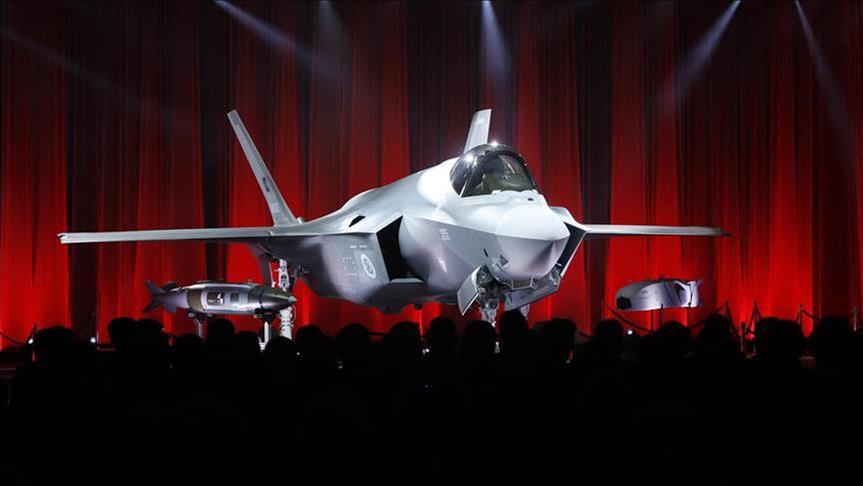Relations between Turkey and the United States have been strained in recent years due to Turkey’s exclusion from the US F-35 fighter jet sale program to Turkey under the pretext of buying Russian S-400 systems. In the last months of 2021, Turkey submitted a request to purchase 40 F-16 fighter jets from America. The request also included the modernization of 80 F-16 fighters in the Turkish Air Force fleet.
Senator Bob Menendez, the Chair of the Senate Foreign Relations Committee, which examines major US international contracts in the field of arms, made the sale of F-16 fighters to Turkey conditional on a change in Ankara’s approach regarding the Russian S-400 system, the suspension of flights over the territory of Greece, a turn in relations with Russia and violations of human rights.
A few days before the vote on the above-mentioned plan, 35 American lawmakers from both major parties of the Congress wrote a letter to the President of the United States demanding to stop the sale of 40 F-16 fighter planes and to modernize 80 other planes to Turkey. From their point of view, selling these fighters to Turkey will mean rewarding Erdogan.
From the point of view of these lawmakers, which includes the Greek-Cypriot lobby in America along with Armenians, the forces supported by Turkey and Ankara use American-made weapons and parts to commit war crimes, including targeted bombing of civilian targets such as hospitals and schools in Iraq, Syria, and Nagorno-Karabakh.
They have also been used repeatedly to violate the sovereign territory of NATO allies and partners such as Greece and Cyprus. From the point of view of this group of representatives, the Turkish army should not be supported until concrete steps are taken to stop Erdogan’s destabilizing actions and his violation of international laws.
While “Doug Jones”, the US Deputy Assistant Secretary of State, or “John Kirby”, the strategic communications coordinator of the National Security Council of the White House, supported Turkey’s plan to modernize the country’s F-16 fighter fleet and called it a contribution to security, but a significant number of members of the US House of Representatives “consider the approval of this deal to be a terrible mistake.”
According to the opponents’ request, the sale of these weapons in the proposed article that they want to be approved by the Congress in the framework of the “2023 National Defense Powers Act”, the approval of the sale of weapons by the head of the US government to a NATO member country (Turkey), that has violated the sovereignty, territorial integrity, and airspace of another NATO country (Greece) in the past year is forbidden. If the sale of arms to this country is of vital importance for national security, and or if the violating NATO member state proves that it has not taken any contrary action in the last six months, the ban on the approval of the sale of arms by the President of the United States will be lifted. This group of representatives sided with the claims of Greece and the Greek part of Cyprus and they believe that Turkey takes a hostile position towards Greece.
The opposition of congress representatives to the sale of these planes is in a situation where this issue is considered another failure for Erdogan in the field of foreign and defense policy. According to Erdogan’s opponents, the statements of the Finnish and Swedish officials before the signature ink was dry in NATO show that Erdogan once again signed this document without receiving any concessions and now another scandal has arisen on the issue of F-16. It is predicted that the restoration of Turkey’s relations with the United States will face many difficulties before the important national elections in Turkey in 2023, and this can affect the popularity of Erdogan and the ruling Justice and Development Party.
The opposition of the US Congress comes at a time when Turkey is seeking to implement the joint production project of “Samp-T” air defense systems with France and expects to ensure the joint defense project with the cooperation of France.
Greece, which is one of the main opponents of the sale of American weapons to Turkey, has pressured the United States in the last year to take such a decision in various ways, including through the consultation of the Prime Minister of this country in the United States and a speech in the US Congress, which was met with strong and standing applause from the representatives. Greece, as Turkey’s traditional rival in the region, at the same time wants to buy fifth-generation fighter jets from America. The lobby of the representatives of this country in the US Congress has been active in opposing the sale of these fighter jets to Turkey. The tension in the relations between Greece and Turkey has never been so complicated and prolonged in any period of modern Greek history. Questioning the sovereignty of Greece over half of the islands of “Aegean and Crete” and strong anti-Greece sentiments in Turkey are proofs of this claim.
The Complexities and the Necessity of Confronting ISIS-Khorasan
Strategic Council Online – Note: With the rise of the Taliban in Afghanistan, the issue of ISIS-Khorasan, the conflict between these two groups, and the expansion of the scope of their security threats in the region have become more critical than ever before, as the terrorist activities of this terrorist group disrupt regional security. In addition to this, support for suicide activities and armed individuals in the region has also put the security of Iran at risk. Therefore, ISIS-Khorasan is recognized as a significant threat to the eastern security of our country.
Dr. Hossein Ebrahimnia – Regional Issues Expert










0 Comments